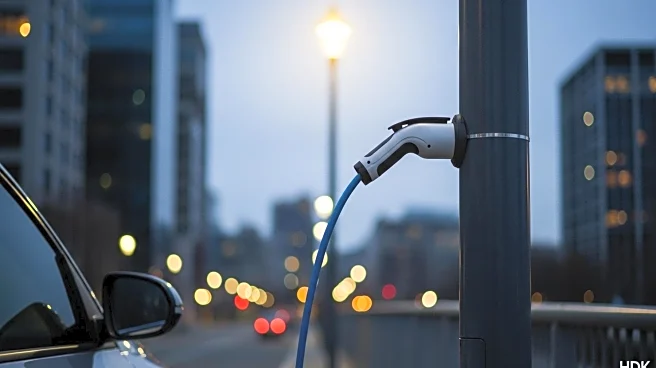What is the story about?
What's Happening?
Researchers at Penn State have developed a framework to use streetlamps as electric vehicle (EV) charging stations, addressing the lack of charging infrastructure in urban areas. They installed 23 streetlight charging units in Kansas City, Missouri, and found them to be more cost-effective and environmentally friendly compared to traditional EV chargers. The study, published in the Journal of Urban Planning and Development, highlights the potential of streetlight chargers to provide equitable access to EV charging, especially for residents of multi-unit dwellings without dedicated home chargers.
Why It's Important?
The initiative could significantly impact urban EV adoption by providing a scalable and accessible charging solution. This approach leverages existing infrastructure, reducing installation costs and environmental impact. By increasing the availability of charging stations, the framework supports the transition to sustainable transportation, potentially reducing urban emissions and fuel costs. The project also emphasizes equity, ensuring diverse communities benefit from the infrastructure. This could lead to broader acceptance and use of EVs, contributing to national goals for reducing carbon emissions and promoting clean energy.
What's Next?
The researchers plan to refine their models by incorporating socio-economic and weather data to better identify communities with limited EV access. This will help ensure equitable deployment of charging infrastructure. The framework's scalability means it could be adopted by other cities, potentially transforming urban transportation landscapes across the U.S. Further research will focus on optimizing the system for different urban environments and expanding the network of streetlight chargers.

















